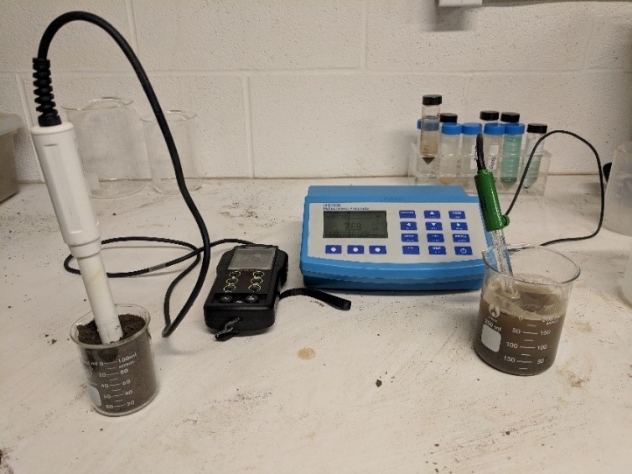THE CONSTRUCTIONIST.

NOV
07
WHAT IS SOIL PH?
Soil pH is extremely important to monitor and control in order to ensure optimal growth and longevity of plants, trees and crops. Soil pH refers to the acidity or alkalinity of soil and is measured in pH units. The pH scale goes from zero to 14. On the scale a pH of 7 is considered neutral; pH readings under 7 are considered acidic and pH readings over 7 are considered alkaline. The lower or higher the reading, the more acidic or alkaline of pH level. Soil that is highly acidic can impede the decomposition of organic matter, slowing down the rate at which essential nutrients are provided to the soil and plants. On the other hand, soils that are alkaline can also impede the absorption of minerals such as iron by plants. A couple symptoms of plants growing in a high alkaline soil are yellowing leaves and damaged root systems.
Luckily plants can tolerate a range of different pH soils. Typically, plants can thrive in soils with a pH range from pH 5.5 – 8, however certain plant species may prefer an acidic or an alkaline soil. If you are trying to grow specific plant knowing what pH soil it prefers can help you get healthier plants. Here are a few optimal pH ranges based on plant or tree type:
|
Common Name |
Optimum pH Range |
|
Birch |
5.0-6.5 |
|
Blueberry |
4.0-6.0 |
|
Lemon |
6.0-7.5 |
|
Pecan |
6.4-8.0 |
There are a few methods to check soil pH; mostly commonly soil pH is measured using a specialized probe. However, soil pH tests can also be performed simply by using special paper strip tests. At Earthco Soil Mixtures, we quality test all of our soil types to ensure we are providing the best product to our customers.
FIND A LOCATION NEAR YOU
BY POSTAL CODE
KMBY CITY















